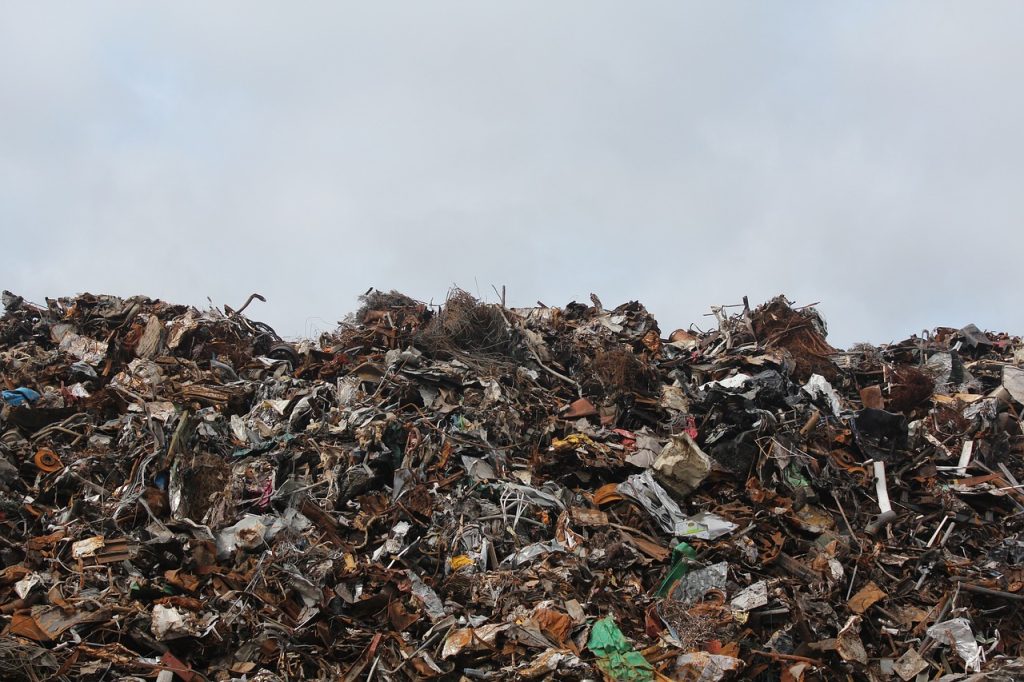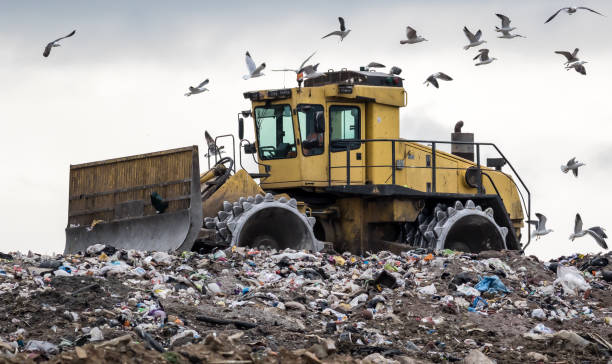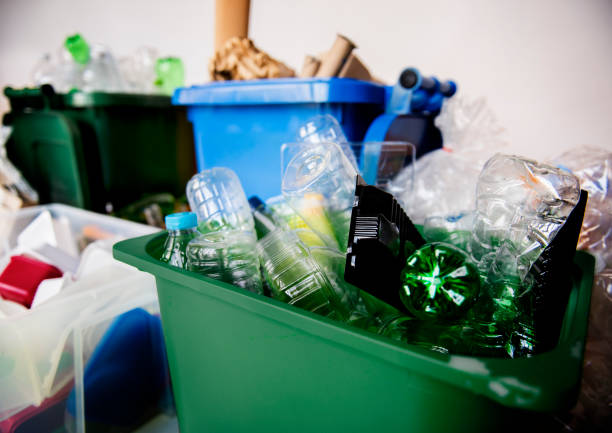Are UK Landfill Sites Full
Landfill sites play a crucial role in waste management, ensuring the safe disposal of various materials. However, with increasing waste production, concerns arise about their capacity and environmental impact. This article delves into the current state of UK landfill sites, exploring their definition, significance, and the factors influencing their capacity that must be considered by landfill operators.

Definition and Significance of Landfill Sites
Landfill sites are designated areas for burying waste materials. They are essential for preventing contamination of water sources and land degradation, especially in areas where municipal waste goes to landfills. Modern landfills incorporate liners and methane capture technology to minimize environmental impact.
Assessing the current state of UK landfill sites, including closed landfill sites, is vital for understanding their environmental impacts and potential hazards. It allows us to identify risks to public health and take necessary steps to mitigate them. Factors such as waste types and disposal methods, including waste-to-energy and biodegradable municipal waste options, are being explored to reduce waste to landfill. and hazardous materials must be considered to gauge contamination levels and prevent pollution.
Background of Landfill Sites in the UK
Landfill usage in the UK has evolved significantly over time, particularly with the introduction of the EC landfill directive. Initially, waste was dumped haphazardly, leading to environmental concerns. However, With growing awareness, communities are more engaged in limiting landfill usage. regulations were introduced to address these issues. Today, we need to address the issue of waste generated in the UK. Landfills are designed to minimize pollution and maximize resource recovery, which is crucial for reducing greenhouse gas emissions and protecting the environment.
The quantity and types of waste disposed in UK landfills have a significant impact on their capacity and management. Municipal solid waste is a major contributor to the million tonnes of waste that ends up in landfills. construction waste and industrial waste are the primary types of waste disposed of in landfills. While hazardous waste disposal has decreased due to stricter regulations and increased recycling efforts, many landfills still struggle with waste to landfill. the overall volume of waste continues to grow, with a substantial amount of it being food waste.
Current Status of UK Landfill Sites
The UK has a network of permitted landfill sites that are regulated and managed for waste disposal, adhering to the landfill directive to minimize environmental impact. These waste sites have varying capacities and utilization rates, which are crucial factors in waste management planning, especially about biodegradable municipal waste.
Challenges in Managing Landfill Waste:
- Limited Space: As landfill sites approach capacity, finding new locations becomes increasingly difficult.
- Environmental Concerns: Landfill operations can lead to pollution of soil, particularly near active landfill sites. water quality can be adversely affected by waste management practices, particularly when waste goes to landfills. and air, especially in regions with many landfills.
- Health Risks: The proximity of waste landfill sites to residential areas poses significant health risks to local communities. The decomposition of organic materials releases harmful gases.
Factors Contributing to Landfill Capacity:
- Government Regulations and Policies: Waste management regulations and policies are essential to ensure that waste goes to landfill in an environmentally responsible manner. including the waste hierarchy, producer responsibility, landfill tax, and environmental permitting, Landfill operators play a significant role in managing landfill capacity.
- Recycling and Waste Reduction Initiatives: Effective recycling programs, waste reduction campaigns, and extended producer responsibility can help reduce the amount of waste sent to landfills.
- Alternative Waste Disposal Methods: Recycling plays a significant role in reducing the million tonnes of waste that ends up in landfills. incineration, composting, anaerobic digestion, and waste-to-energy initiatives can help mitigate the amount of municipal waste that ultimately goes to landfills. and landfill gas capture offers alternative options for managing waste sites.
Future Projections for UK Landfill Sites
Population growth and changing consumption patterns will likely increase the demand for landfill space. Strategies for sustainable waste management and landfill site management are crucial to protect the environment and address this challenge.

Key Strategies:
- Reduce, Reuse, Recycle: Prioritize waste reduction and promote recycling to limit the number of landfill sites needed.
- Separate Waste: Encourage households and businesses to separate waste for better management.
- Invest in Advanced Technologies: Explore technologies for recycling difficult materials and converting waste to energy.
- Promote Composting: Reduce organic waste through composting to limit the amount of waste that ends up in landfills.
- Community Involvement: Engage local communities in recycling and waste reduction efforts to decrease the amount of waste generated and protect the environment.
- Strengthen Regulations: To ensure better management of waste landfill sites, stricter regulations must be enforced. Implement stricter regulations for plastics and promote sustainable packaging to reduce the amount of waste that goes to landfill.
Conclusion
While UK landfill sites are not currently full, the increasing volume of waste and limited capacity highlight the need for sustainable waste management practices. By implementing effective strategies, such as those outlined by the environmental agency, we can improve waste management and reduce the burden on landfills in the UK. Reducing waste generation is crucial to minimizing the amount of waste sent to landfills in the UK and exploring alternative disposal methods, such as energy from waste, can help reduce reliance on landfill. the UK can ensure a more sustainable future for its landfill sites.







